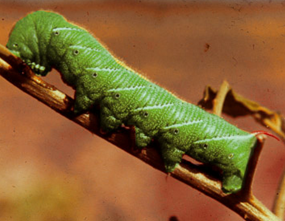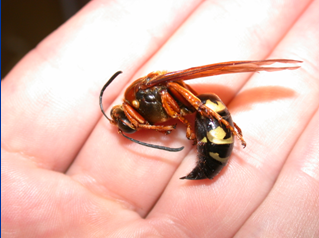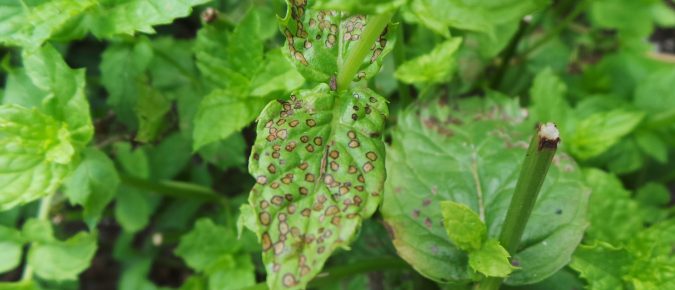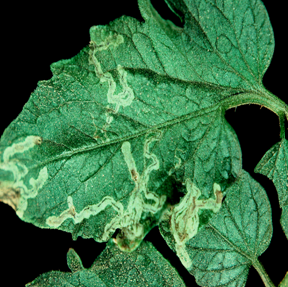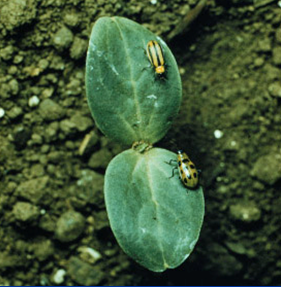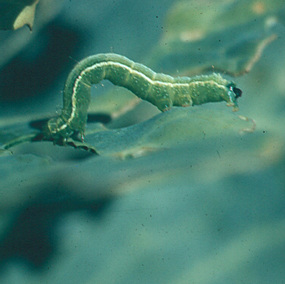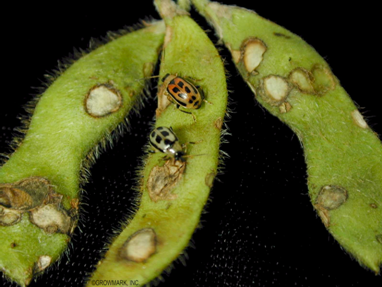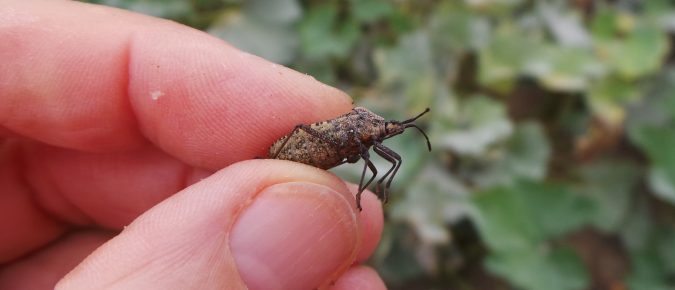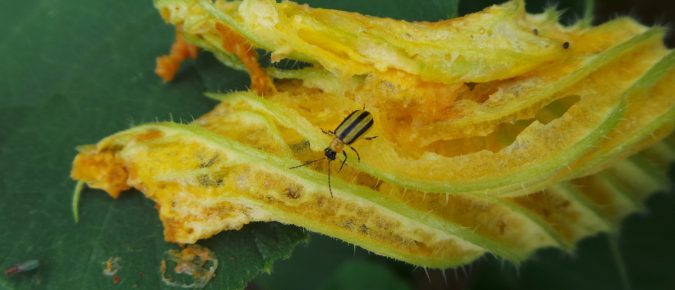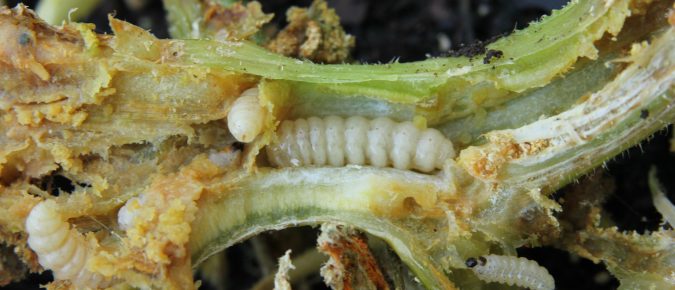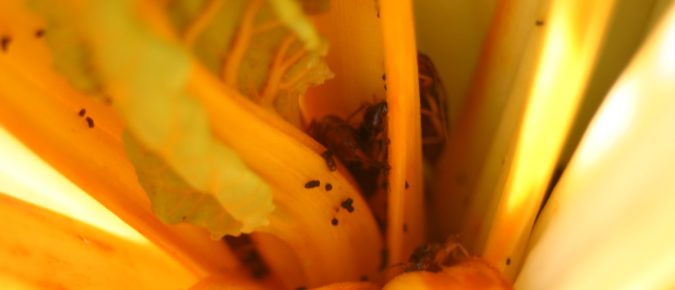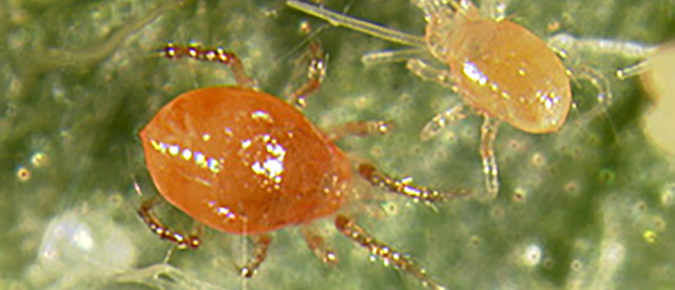Author: Russell Groves, UW-Madison Entomology Last Revised: 05/01/2020 X-number: XHT1107 Tomato hornworms (Manduca quinquemaculata) and tobacco hornworms (M. sexta) are large, blue-green caterpillars (larvae) with a spine (horn) on the posterior (rear) end. These insects do not typically cause significant damage in commercial vegetable fields. However, large numbers of larvae can occasionally occur in home gardens, leading to […]
Cicada killer wasps are common in the southern part of Wisconsin. These non-aggressive wasps feed on cicadas. Learn more in this factsheet.
Four-linied plant bug attacks a wide variety of herbaceous and woody plants. Learn to identify and manage this pest in this factsheet.
Karen Delahaut, UW-Madison, Fresh Market Vegetable Program Revised: 1/5/2005 Item number: XHT1044 Leafminers are insects that feed on the tissue between the upper and lower epidermal layers of leaves. Leafminers can be serious problem on vegetables that are harvested for their foliage (e.g., spinach or chard). Leafminers can be the larval stages of flies, moths, […]
Striped and spotted cucumber beetles are common pests of vine crops that can cause damage to roots, leaves, flowers and fruits, leading to reduced yield. Learn more in this factsheet.
Karen Delahaut, UW-Madison Fresh Market Vegetable Program Revised: 8/19/2010 Item number: XHT1029 The cabbage looper (Trichoplusia ni) is a lepidopteran insect and an important pest of cole crops in Wisconsin. All cole crops, including cabbage, broccoli, Brussels sprouts, cauliflower, and rutabaga, are susceptible to attack by this insect. In addition, cabbage loopers will also attack […]
Karen Delahaut, UW-Madison Fresh Market Vegetable Program Revised: 4/26/2004 Item number: XHT1131 Bean leaf beetles (Cerotoma trifurcate) are becoming more of a problem in Wisconsin than they have been in the past. Warmer winters may allow overwintering adults to survive in record numbers. Host plants include snap and lima beans, peas, and soybeans, as well […]
There are all kinds of flies in the Midwest. One interesting species is a medium-sized black and orange tachinid fly that develops in a number of true bugs, including squash bug. Although not really common, you may have this in your garden and not even know it! To learn more about this parasitoid, read this article…
In late summer and fall, cucumber beetles are common visitors to squash and cucumber flowers. They eat the petals, and sometimes the plant foliage. To learn more about these beetles, read this article…
The nemesis of almost everyone who tries to grow squash in the Midwest, squash vine borer is a difficult problem to control. The larvae of this day-flying moth tunnel in the stems of zucchini, winter squash and pumpkin, causing the plants to wilt and frequently die. To learn more about this native insect pest, read this article…
Many people are repulsed by the sight of an earwig and its intimidating back end. But those pinchers are mostly just for show, and these insects won’t harm people. They are primarily scavengers feeding at night, but they will eat some living plants and may cause damage at times. To learn more about these “icky” insects, read this article…
Did you know that there are mites that eat other mites? Barely visible to the naked eye, these little predators help keep spider mites and other pests in check. Read on to learn more about this fascinating world of tiny predatory mites…

